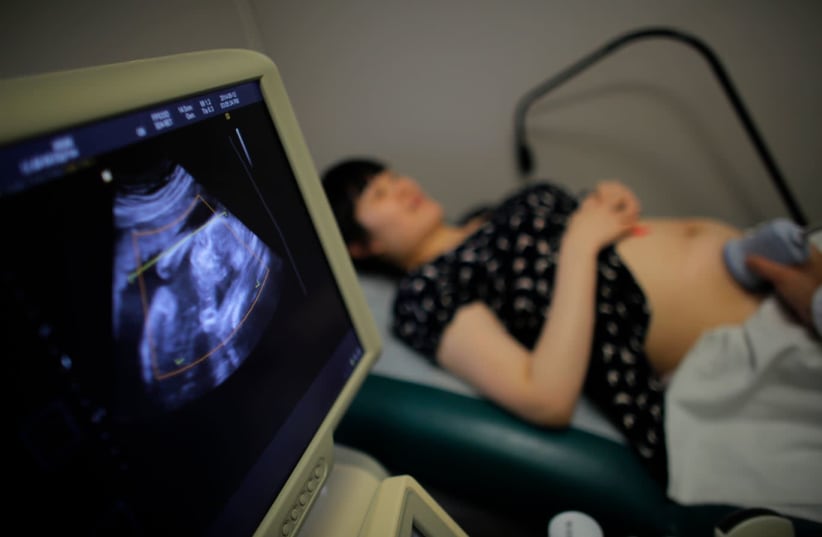A study by researchers at Bar-Ilan University has found, for the first time, that intestinal bacteria can “sense” pregnancy.
While gestation – the carrying of an embryo or fetus – is known to be accompanied by alterations of the microbiome – the important bacteria that live inside and on our body – previous research failed to understand the mechanisms that drive these alterations, which are partially responsible for weight gain and inflammatory response during pregnancy.
A study conducted by Dr. Omry Koren of Bar-Ilan University’s Azrieli Faculty of Medicine, together with Prof. Yoram Louzon of the university’s Department of Mathematics and researchers from the Rabin Medical Center-Beilinson Campus in Petah Tikva, has discovered that progesterone hormones regulate the microbial composition of bacteria during pregnancy in a way that may assist babies to develop.
The findings were published on Tuesday in Cell Reports, a peer-reviewed scientific journal publishing papers across the life sciences spectrum.
The researchers found a dramatic change in the composition of bacteria during late pregnancy, including a notable increase in Bifidobacterium, bacteria that are crucial for young infants because they break down healthy sugars in breast milk that are important for babies’ growth.
They discovered that pregnant women exhibited an increase in the level of progesterone accompanied by an increased inflammatory response. While they recorded an increase in other bacteria too, Bifidobacterium was the only bacteria that was identical to pregnancy in mice.
When the researchers imitated pregnancy in mice, using progesterone, they found that the Bifidobacterium increased too, leading them to conclude that it “senses” progesterone and reacts to it. They also found that Bifidobacterium increased rapidly when progesterone was administered in a controlled environment outside of a living organism, strengthening their conclusion.
“Our results delineate a model in which progesterone promotes growth of Bifidobacterium during late pregnancy,” said Dr. Koren.
“The findings provide new insights into understanding the relationship not only between hormones and intestinal bacteria during pregnancy, but also for other conditions in which hormones are involved, such as progesterone supplementation as a component of fertility treatments or therapy in menopausal women,” he said.
The researchers are now seeking to identify the reasons behind the reaction of Bifidobacterium, as well as evaluating what other pregnancy hormones do and their effect on bacteria.
